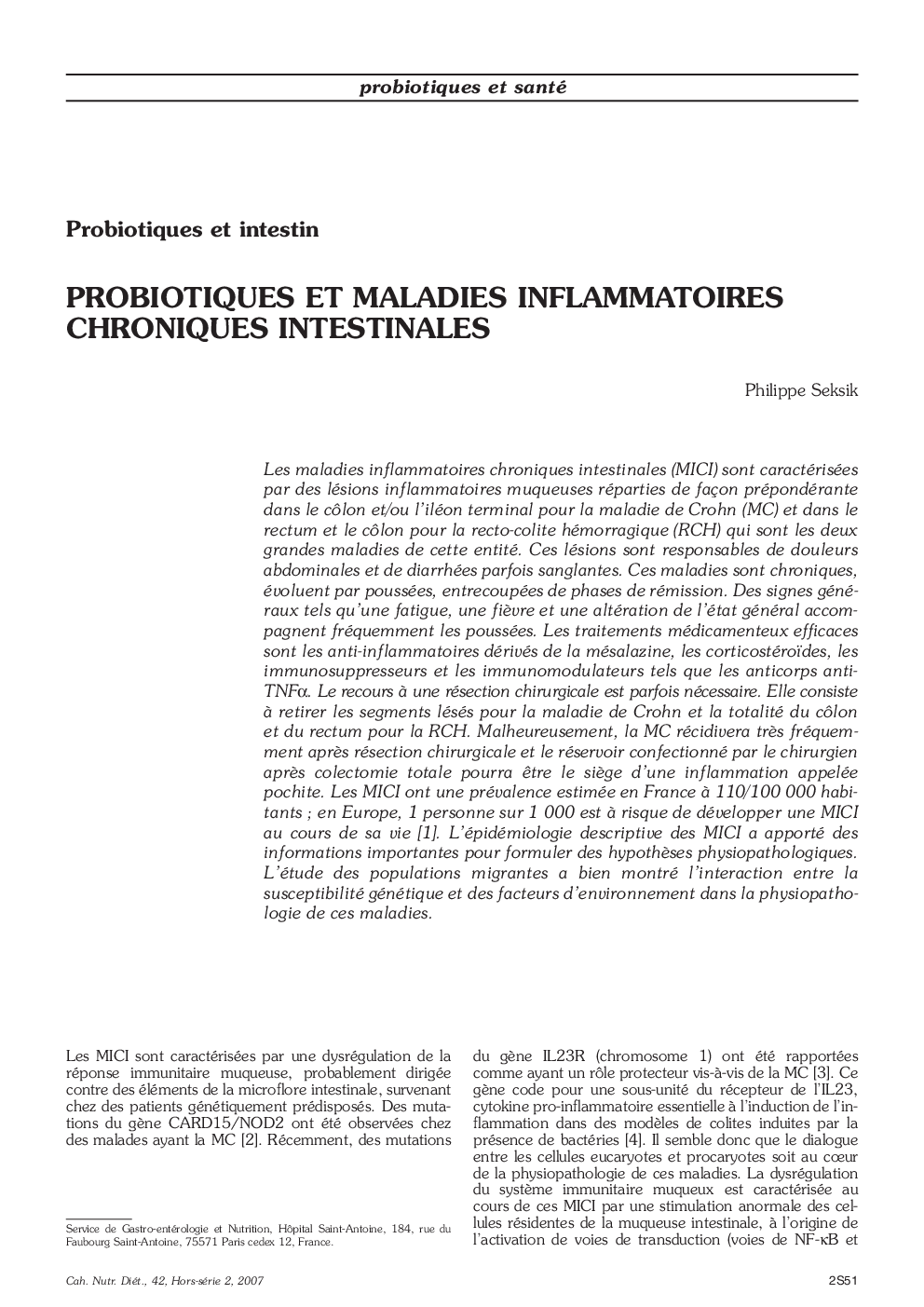| کد مقاله | کد نشریه | سال انتشار | مقاله انگلیسی | نسخه تمام متن |
|---|---|---|---|---|
| 2678820 | 1142124 | 2007 | 9 صفحه PDF | دانلود رایگان |
عنوان انگلیسی مقاله ISI
Probiotiques et maladies inflammatoires chroniques intestinales
دانلود مقاله + سفارش ترجمه
دانلود مقاله ISI انگلیسی
رایگان برای ایرانیان
کلمات کلیدی
Inflammatory bowel diseases (IBD)Innate immunity - ایمنی ذاتیadaptive immunity - ایمنی سازگاریImmunité adaptative - ایمنی سازگاریImmunité innée - ایمنی فراگیرDysbiose - بی اختیاریCrohn's disease - بیماری کرونDysbiosis - دیس بیوسیMaladie de Crohn - مالدی د کرونIntestinal microbiota - میکروبیای روده یا باکتری های روده ایProbiotics - پروبیوتیکProbiotiques - پروبیوتیک هاPouchitis - پوچیتسUlcerative colitis - کولیت اولسراتیو
موضوعات مرتبط
علوم پزشکی و سلامت
پزشکی و دندانپزشکی
غدد درون ریز، دیابت و متابولیسم
پیش نمایش صفحه اول مقاله

چکیده انگلیسی
Inflammatory bowel diseases (IBD) are chronic diseases showing flare-ups and remission phases. They are responsible for abdominal pain, diarrhoea and sometimes hematochesia. IBD pathophysiology is still unknown but the general view involves dysregulation of the mucosal immune responses to intestinal microbiota patterns in genetically predisposed individuals. Permanent contact of the microbiota with the mucus and epithelial cells can lead to playing a large role in the initiation and/or perpetuation of the intestinal lesions. In IBD and especially in Crohn's disease, mutations in innate immunity receptors involved in microbiota patterns recognition have been discovered. Dysbiosis defined by an imbalance between “protective” and “harmful” commensal bacteria has been described in IBD. These facts represent major clues to refocusing IBD pathophysiology on the cross talk between prokaryote and eukaryote cells. Thus, modulation of the intestinal microbiota using probiotics is an interesting approach in aiming to control these diseases. Therapeutic trials testing probiotics in IBD show variable results related to specific strains and particular inflammatory conditions. Results are discussed in this review. Molecular and cellular effects of probiotics are complex. They involve luminal effects such as changes in pH, occupation of space and competitive exclusion for substrates, increase in secreted IgA and secretion of bacteriocins leading to host protection from pathogen colonization. They also involve gut barrier integrity of the intestinal epithelium and immune effects such as a decrease in pro-inflammatory cytokine secretion and modulation of the adaptive immune system. The vast magnitude of probiotic effects on digestive physiology is an encouraging tool to use them to try to control IBD by modulating intestinal microbiota. Moreover, this approach appears more physiological and ecological than use of antibiotics and immunosuppressants.
ناشر
Database: Elsevier - ScienceDirect (ساینس دایرکت)
Journal: Cahiers de Nutrition et de Diététique - Volume 42, Supplement 2, April 2007, Pages 51-59
Journal: Cahiers de Nutrition et de Diététique - Volume 42, Supplement 2, April 2007, Pages 51-59
نویسندگان
Philippe Seksik,